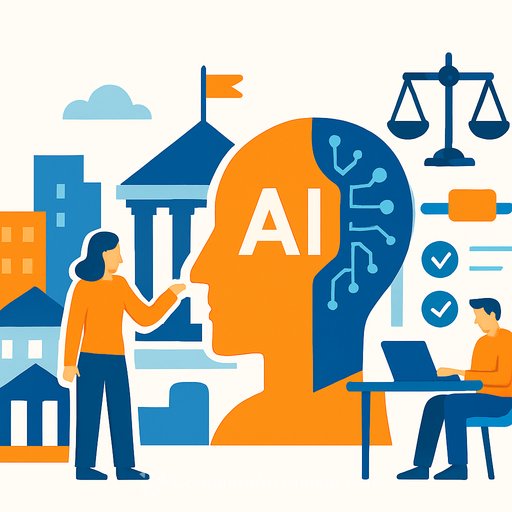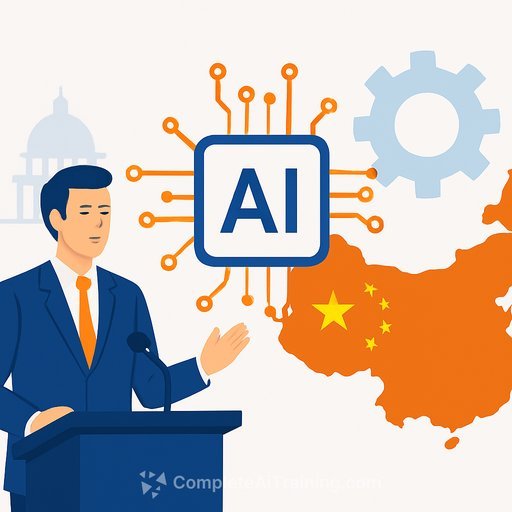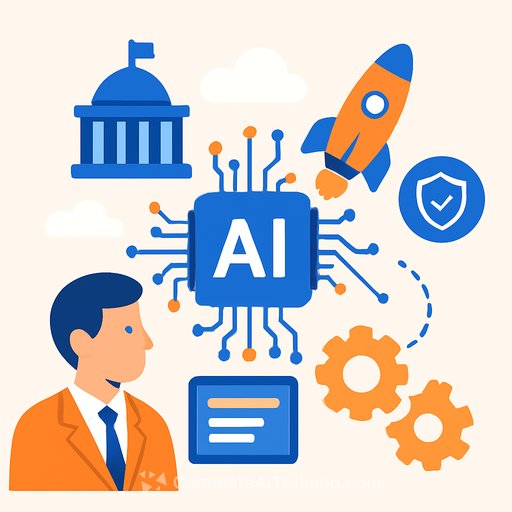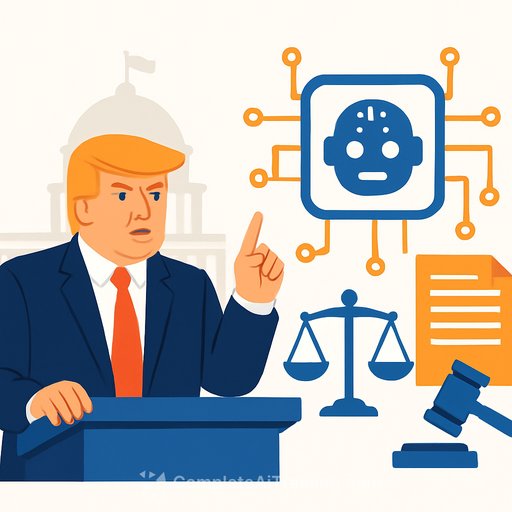The Complete Guide to Using AI in the Government Industry in Newark in 2025
Too Long; Didn't Read: Newark’s 2025 AI strategy combines state leadership groups like the NJ AI Hub and AI Task Force with federal funding and practical pilots. One standout example is a council-meeting summarizer that condenses 90-minute sessions into two-minute action lists. The focus should be on sandboxes, governance aligned with NIST standards, thorough vendor checks, and workforce training.
Newark benefits from being in a state ranked by Code for America as an “Advanced” adopter of public-sector AI. Statewide momentum matters for city agencies planning real projects this year. The New Jersey AI Task Force and NJ AI Hub provide leadership in governance, capacity building, and technical infrastructure. Meanwhile, the federal America’s AI Action Plan reshapes funding and incentives. Newark leaders should combine smart procurement with local workforce training—short applied programs such as AI Essentials bootcamps help turn policy into practical tools like the meeting summarizer.
What is AI and Common Terms for Beginners in Newark, New Jersey
AI might seem technical, but for Newark’s government staff, think of it as software that recognizes patterns and speeds up work. Examples on NJ.gov include facial recognition, text prediction, and voice assistants. Popular tools like ChatGPT, Microsoft Copilot, and Google’s Gemini are taught in local live sessions.
Start with basic concepts:
- Machine learning: algorithms that learn from data.
- Generative AI: models that create text or images.
- Neural networks/deep learning: layered models behind many AI systems.
These topics are covered in courses at Rutgers and NJIT, which offer foundational and applied AI skills. For busy city teams, short workshops teaching prompt techniques and Copilot for Excel are practical. NJIT’s AI Literacy Microcredential breaks down basics into manageable courses, helping teams develop shared knowledge without long commitments.
Here’s a simple test: if an AI tool reliably turns a 90-minute council meeting into a clear two-minute summary, it’s doing practical AI work—not magic. Local courses and microcredentials are the fastest way to use these tools responsibly in Newark government.
AI Regulation in the US in 2025 and New Jersey Specifics
The regulatory environment in 2025 has two speeds. The White House’s America’s AI Action Plan pushes investment, infrastructure, and workforce growth while encouraging agencies to remove “regulatory barriers.” States that avoid new restrictions may get federal grants more easily. Newark planners should treat federal funding as conditional, not guaranteed.
There’s still no single federal AI law. Agencies like the FTC and EEOC address harms under existing laws, while states experiment with their own rules. New Jersey recently proposed whistleblower protections and is tracking bills such as A-4480 addressing misuse of personal characteristics.
For Newark, the practical approach is to combine solid vendor due diligence and NIST-aligned governance with focused local training. This helps projects qualify for federal incentives without triggering state or federal enforcement.
AI Trends and Technologies Affecting Newark Government in 2025
Newark should focus on these AI trends:
- Multimodal AI: combines data from text, images, and audio in one workflow.
- Intelligent agents: automate routine citizen inquiries 24/7.
- Smarter search: unlocks legacy records quickly and accurately.
Multimodal AI will help city teams analyze documents, photos of infrastructure, and voicemail reports together, improving permit processing and storm-response prioritization. Tools like Gemma 3, Phi-4 Multimodal, and Llama 3.2 can be fine-tuned for city needs.
AI agents can handle routine questions, while assistive semantic search improves data access. Security also gets sharper, with automated detection focusing on actionable alerts instead of noise.
Newark’s takeaway: run targeted proofs-of-concept and perform vendor due diligence. These tools can save time and improve services when deployed carefully.
AI Industry Outlook for Newark and New Jersey in 2025
Newark faces both opportunity and caution. Investments from Princeton, NJIT, and Rutgers aim to keep AI talent local and tap into a $1.3 trillion statewide AI opportunity. AI could affect nearly half of all work hours, so city leaders should prioritize high-impact, customer-facing applications that free staff for more valuable work.
Investors favor startups with paths to steady revenue and profitability, focusing on AI products that directly serve citizens and city operations. This matters for Newark when selecting vendors or partnering with local startups.
The combination of state support, founder-friendly policies, and a capital market that rewards practical AI use creates fertile ground for Newark pilots. Success depends on simplifying policy friction, aligning incentives, and linking procurement to workforce training to turn tools into jobs and better services.
AI Use in Government: Newark Case Studies
New Jersey’s pilots offer a playbook for Newark:
- The NJ AI Assistant, a secure state-hosted generative AI chat, helped scale template revision from weeks to an hour. It costs about $1 per user per month and is saving millions while reaching many state workers.
- Resident-facing successes include the ANCHOR call center’s smarter self-service menus, boosting resolved calls by 50%, and the Department of Labor’s plain-language outreach, speeding responses by 35%.
These projects share key design features:
- Host or sandbox tools where possible.
- Pair access with role-specific training.
- Require human review for decisions.
- Measure time savings to support scaling.
Newark teams should mirror these choices to protect privacy and equity while improving efficiency.
Building and Procuring AI for Newark Agencies: Practical Steps
Start with audit-ready steps aligned with state and federal expectations:
- Publish and update an AI use-case inventory detailing tool purposes, data sources, and testing plans.
- Include contract clauses that protect government data control and require real-world performance testing.
- Make AI impact assessments and human-review rules mandatory for systems affecting rights.
Set governance rules emphasizing explainability, traceability, and role-specific training. Pilot AI tools in sandboxes before full deployment to avoid surprises. Require vendors to show nondiscrimination testing, bias mitigation, and ongoing monitoring.
Assign a responsible lead—such as a Chief AI Officer or combined CDO/privacy officer. Link procurement to local training and sandbox rollouts so Newark maintains technical control while building workforce capacity and public trust.
Ethics, Bias, and Governance for Newark AI Projects
Ethics and bias are practical concerns. Newark Public Schools paused a plan to install 7,000 AI-capable cameras due to privacy, misidentification, and infrastructure worries. This highlights the need for tight vendor accountability and cybersecurity controls when outside contractors handle sensitive data.
Federal guidance now requires documented datasets, nondiscrimination testing, sandboxing, human review for rights-impacting decisions, and procurement language preserving data control and monitoring.
Newark’s leaders should design contracts and policies so AI reduces staff workload without sacrificing privacy or fairness. Governance choices will decide if AI protects residents or perpetuates bias.
Workforce, Training, and Partnerships in Newark
Newark’s AI-ready workforce depends on the state’s new training ecosystem:
- The NJ AI Hub connects researchers, startups, industry, and educators to empower the workforce for AI.
- Microsoft’s TechSpark and Hub partners provide resources and practical skilling programs.
- The New Jersey AI Task Force emphasizes updating education, expanding AI literacy through community colleges and vocational schools, and targeting equity with scholarships.
Organizations like the New Jersey Innovation Institute help turn partnerships into field tests, upskilling cohorts, and employer-connected apprenticeships. Newark agencies and startups can staff AI pilots with trained local talent instead of relying on remote hires.
Conclusion: Getting Started with AI in Newark Government in 2025
Starting AI projects in Newark means combining clear practicality with hands-on learning. Pick a small, high-value pilot—such as a council-meeting summarization tool that turns 90 minutes into two minutes of clear actions.
Protect data by testing in a sandbox and train the users and auditors of the system. For technical basics, the DigitalOcean guide offers a project-first path from Python and machine learning concepts to deployable demos.
For prompt skills and operational readiness, cohort training programs are helpful. Experiment with lightweight proofs-of-concept to prove time savings before scaling. Document datasets and human-review rules, and link procurement to training so Newark turns policy and funding into reliable, fair services.
Your membership also unlocks:






